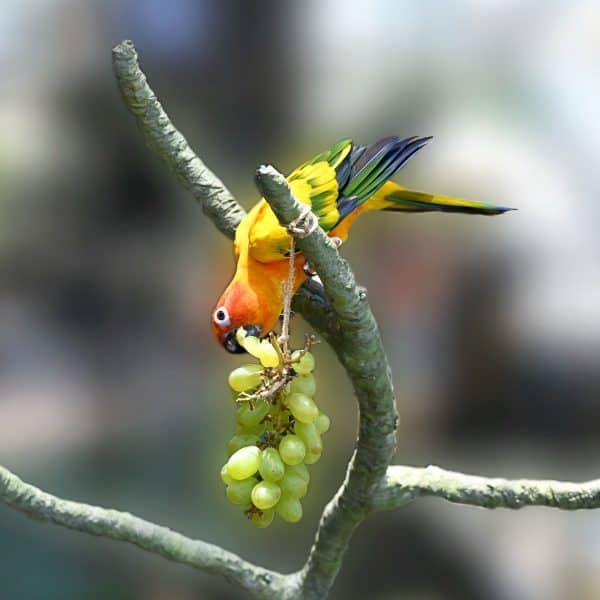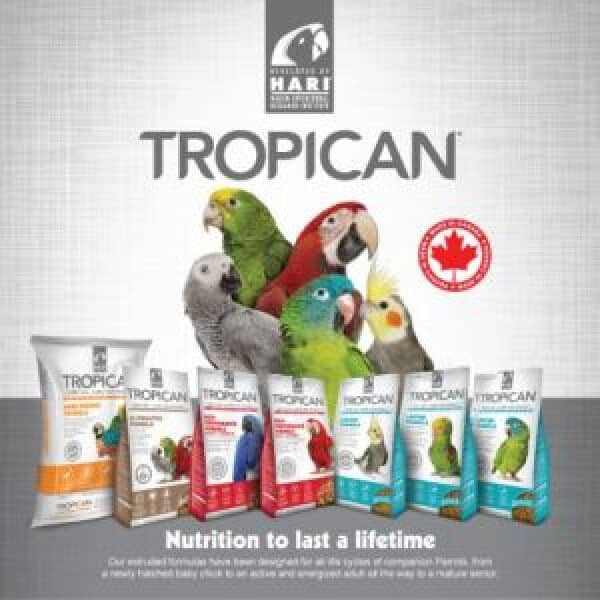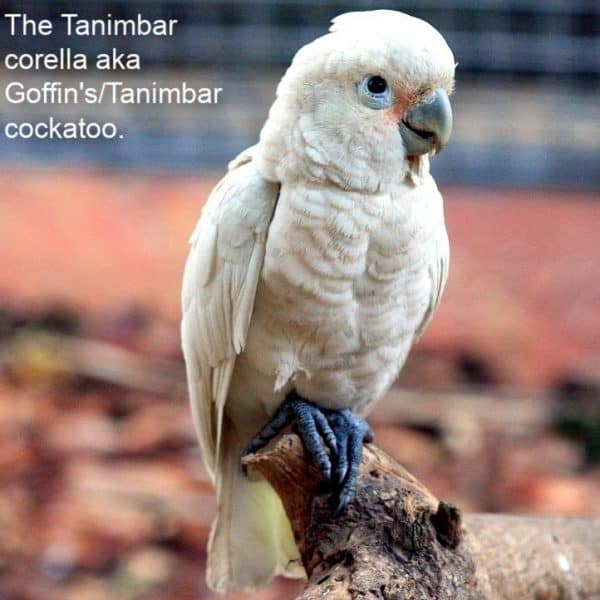Last Updated on by Catherine Tobsing
Dear Mitch and Catherine! 😊
First of all, I want to thank you for all the wonderfull “breakfast meals” you give us “hungry” parrot slaves every sunday! 😊
They are so informative, and I always look foreward to read them every weekend!
Thank you very much for ALL the work you make in the research of writing these articles! ☺️
By the way; I love the new format you’ve made on your website!! 😊😊
I appologize for the inconvineance, but I hope you have the time to help me, please, with a couple of questions about a few different subjects.
First of all; my heart is owned by my 6 month old sweetheart parrotlet boy, named Charlie. ☺️❤️
- Sprouts and F10:
This is about the cleaning product F10 SC. ☺️
I make sprouts for my parrot, and I’ve heard that you can put F10 in the soaking water, to remove bacterias, avoid fungus, etc.
– Is that true..?
And if so;
– how many drops of F10 should I mix in – lets say – 0,5 liter of soaking water..?
- Supplements for my parrotlet:
I’m very happy that Charlie eats TOPS pellets, and there’s all the vitamins and minerals in them that he needs on a daily basis.
And he only get seeds when they are sprouted! ☺️
(FYI, I have a very strange bird, – he DOES NOT like sunflower seeds!!? Wheather sprouted or not!)
I’m always very conscious about the fact that while parrots can suffer from malnutrition if not getting enough vitamins and minerals daily,
– it can also be very toxic, (even deadly!) if parrots have overconsumption of vitamins and minerals, every day !
– But can I give my little parrotlet some of your natural supplements, and buy products like:
– Beepollen, Spirulina, dried herbs and flowers, and eggfood..?
(Not chemically made supplements!
I don’t like giving “unnatural” vitamins and minerals, like the powder supplements you can buy.
I prefer giving natural food with natural vitamins and minerals, etc.)
– Or will I be giving too many vitamins and minerals in my birds diet..?
(So my bird could be risking toxic overconsumption of vitamins and minerals.)
Or is it only necessary/recommended to feed seedeating birds..?
(Shall I e.g. give a smaller amount of the supplement, when my parrotlet is on pellets, to avoid too high a vitamin and mineral consumption?)
Can I e.g. give a little bit of each natural food and supplement daily, – and not mixed together; so I’m not giving too much vitamins every day..?
E.g. one day with mixed dry herbs, one day with beepollen, one day with eggfood, etc.. and then start over again.)
- Calcium, and minerals :
– Can I give my parrotlet cuttlebone for extra calcium, and a mineral-block for minerals, – or will he get too much, when he also eats pellets..?
(Roudybush writes this on their website:)
” We do not recommend offering cuttlebone to birds that are being fed Roudybush pellets. Our diets are formulated with mineral and vitamin requirements in mind. Birds offered cuttlebone in addition to Roudybush pellets may actually reach toxic levels of certain nutrients such as calcium..”
I’m sorry for asking so many questions, I’m just very conscious about doing the best I can for my parrots. ☺️
Thank you so VERY, very much for all your help! – And for all the time you use to answer my questions! 😁
I’m very grateful for your help, – a million thanks once again !! 😁
Have a wonderful day!
Kind regards,
Christine
P.S.: A little side-question; ☺️
– Other than minerals, does cuttlebone also contain calcium..?
Or do you need to give a mineral-block also..?
Hi Christine,
Thank you for the kind words and positive feedback, they are most appreciated.
Regarding the sprouts and F10, what you’re saying is that you want to introduce a food to your bird that might be harmful so you’re going to process it with a chemical that may mitigate illness but nobody is quite sure how to use F10?
I also came across this article
http://www.abc.net.au/news/2017-03-30/orange-bellied-parrot-deaths-caused-by-contaminated-feed/8398426
Where a professional organization was lulled into a sense of complacency because it turns out that the bacteria they were defending against using their own formulas had become resistant to the solution ending in the tragic death of 16 birds.
I would ask “why take a chance”?
We introduce sliced cucumbers to our flock, small sprigs of millet, thawed frozen vegetables (a small dish) and let them nibble all day.
Before I get on with other recommendations the place you need to start is with a veterinary blood work up to see if there’s any vitamin deficiencies that you should be addressing to begin with.
Why guess?
TOPS pellets are theoretically all Charlie needs for well balanced diet.
“There are no pellet trees in the rainforest”
Fresh fruits and vegetables, things that should be on your own table daily can be shared with your parrotlet.
I feel the notion that we must introduce human food to a psittacine is misguided.
The metabolic systems of these feathers creatures are so different than ours their nutritional requirements do not line up well with mammals.
If Charlie is not suffering there’s really no reason to introduce additional supplements.
It’s not going to make Charlie any “healthier.”
A flighted bird is a healthier bird than one who has clipped wings.
Seeds are fine for your bird – I don’t know why so many people knock them.
Our Senegal and ringneck generally get a base diet of Higgins Safflower Gold or Hagen Tropimix Parrot – with a side of Goldenfeast Conure Blend in separate dishes.
Our six budgies get a basic seed mix.
To the seed containers I add about 20% of whatever broken bag of appropriately sized pellets that are available in the refrigerator (in two Tupperware containers) and at work then shake everything up.
Our birds are healthy and happy.
The budgies get twin lettuces bath almost daily.
The love nibbling on the lettuce and splashing around in it too. The lettuce stays fresh and the birdies get cleaned up.
Throughout the day, the 2 bigger birds get one or two nutri-berries and we share nuts like plain almonds.
I have high blood pressure so not having salt works out well for all of us.
Personally I’d rather see you interact with your bird more rather than preparing time consuming special foods because it’s not going to change a lot in your bird’s life.
This is especially true if the foods are not being presented along with forging opportunities just an open bowl.
The delivery of the food is just as important as the food itself.
You say Charlie is a boy (hopefully confirmed), thus cuttlebone is not a necessary part of his diet.
Brooding females need calcium supplements, males do not.
Overall Roudybush is correct about not needing additional cuttlebone unless we have an egg laying bird that is molting.
Eggs and feather growth requires enormous amounts of calories which come from amino acids which are derived from protein.
It’s very hard to make blanket nutritional statements about 600 species of birds.
There is no one size fits all bid food.
Anything that you read on well-known manufacturers ingredient panels still needs to be questioned and vetted relevant to your particular bird’s species.
Call or email, reach out to a human at the bird food company(s) to increase your own knowledgebase.
The most important thing you can do for Charlie is to interact with him, be sociable, remember you are his flockmate.
An unsocialized parrotlet can become nothing more than a pair of flying scissors.
Other points to consider are things like your lighting strategy.
A bird without a light no more than 6 inches over its cage on a timer for 12 hours on and 12 hours off is a stressed bird because of the inconsistent (in the birds mind) North American light cycles..
What activities are available inside the bird’s cage?
When the cage door is open does he fly to you?
What does he do when he’s out of the cage?
How is he getting his exercise?
I’m asking all of these rhetorically but you get the picture.
A dormant bird is less likely to be healthy than an active one.
Hope this helps
best
mitchr
Author Profile
Latest entries
 Feeding Exotic BirdsDecember 29, 2025How to Switch or Convert Your Bird From Seeds to Pellets: Real-Life Case Studies and Practical Guidance
Feeding Exotic BirdsDecember 29, 2025How to Switch or Convert Your Bird From Seeds to Pellets: Real-Life Case Studies and Practical Guidance Feeding Exotic BirdsDecember 16, 2025A Practical, Budget-Smart Guide to Feeding Birds Well
Feeding Exotic BirdsDecember 16, 2025A Practical, Budget-Smart Guide to Feeding Birds Well Bird EnviornmentsDecember 7, 2025Understanding Budgie Cage Bar Orientation: Myths, Realities & Practical Solutions for Vertical-Bar Bird Cages
Bird EnviornmentsDecember 7, 2025Understanding Budgie Cage Bar Orientation: Myths, Realities & Practical Solutions for Vertical-Bar Bird Cages Feeding Exotic BirdsDecember 5, 2025How Dr. T.J. Lafeber Rewrote the Future of Pet Bird Nutrition
Feeding Exotic BirdsDecember 5, 2025How Dr. T.J. Lafeber Rewrote the Future of Pet Bird Nutrition


